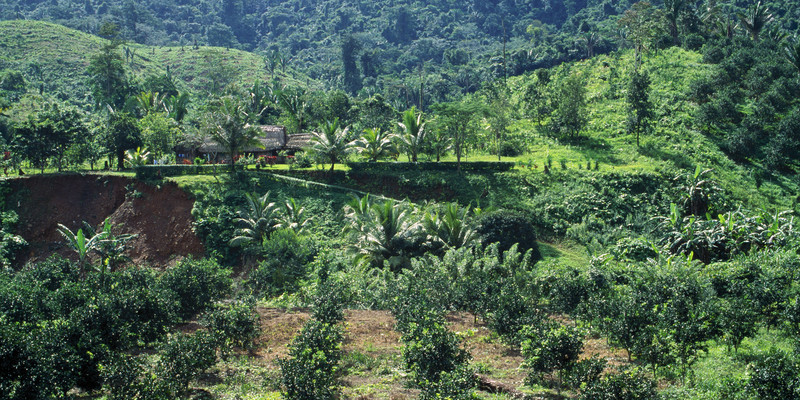Agricultural intensification alone cannot save the rainforests
‘’The big debate at the moment is that the population is growing, we’re going to have 8 billion people by 2050, and the assumption, although being questioned as issues with food distribution and high costs also pose a major obstacle to feeding everyone, is that in order to feed all these people you to need to increase agricultural production. So the question is, if you have to increase food production, how you do it,’’ says Graziano Ceddia of the Department of Public Governance and Sustainable Development.
Together with MU’s Sabine Sedlacek and researchers the University of Reading and the European Commission Joint Research Centre, tackled this issue in their recent paper ‘’Governance, agricultural intensification, and land sparing in tropical South America’’, in the international academic journal PNAS, one of the top international academic science publications.
The team empirically analyzed the main factors for the agricultural land expansion in six South American countries which contain 94% of the tropical rainforests of South America (Bolivia, Brazil, Colombia, Paraguay, Peru and Venezuela), in the period of 1970-2006.
Their results shed further light on the role of governance and agricultural intensification on agricultural expansion in this region, finding that it plays a crucial role in the occurrence of land sparing or ‘Jevons paradox’, which is ‘’the proposition that as technology progresses, the increase in efficiency with which a resource is used tends to increase (rather than decrease) the rate of consumption of that resource.’’
‘’It applies to land in that as the efficiency of using land increases overall, the use of land is going to expand,’’ clarifies Graziano. ‘’When you increase agricultural productivity, you increase economic returns on agricultural land use, so suddenly agriculture becomes more profitable because you are producing more food per each hectare, in turn increasing the incentives for agricultural expansion. If agriculture is more productive and you can make more money from land in agriculture, then suddenly converting land to agriculture becomes more convenient than keeping it as forest. ‘’
However, their research suggests that measures have to be put in place to stop the unmitigated expansion agricultural land which causes deforestation. Increased efficiency of agriculture can help to produce more from the already available land, however unchecked and unregulated the potential for overuse is very high.
‘’Technology is by itself neither good nor bad.’’ What we find is that if you improve agricultural productivity, which implies some form of technological development such as new seed varieties new cultivations and techniques, it will not automatically allow you to spare land for nature. Institutions are very important in governing this process.’’
Key conclusions indicate the importance of good policy making -agricultural intensification needs to be accompanied by policies that specifically focus on the environmental aspects of governance. They suggest solutions such as spatial constraints on the possibility of expanding agricultural areas.
‘’The implication is that intensification may be necessary if we want to increase production, but unless, together with intensification, we invest resources in strengthening environmental governance, we make strict laws about the use of land, this area cannot be deforested, or introduce some form of penalty for not adhering to the law. Unless this is done, intensification will not necessarily spare the land.’’





